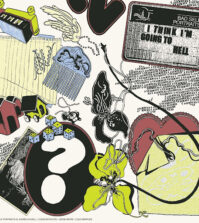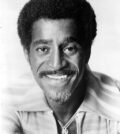- Cirque du Soleil’s “Crystal” at Fishers Event Center, a photo preview
- The Gatlin Brothers at Brown Country Music Center
- The Black Keys will perform at Innings Festival, Feb 21.
- Gary Clark Jr. will rock the Innings Festival 2025
- Fall Out Boy to appear at Innings Festival in February
- Kris Kristofferson passes away at 88
Scott Weiland: The Lingering Hangover of Stardom
The only grunge album I bought in the early ‘90s was Nirvana’s Nevermind. Kurt Cobain transcended the genre in that he was simply a great writer of melody and chord structure. Although the other popular grunge bands of the era had their merits, Nirvana had a timeless quality that can only be achieved by having great material. I didn’t particularly like the style of Eddie Vedder’s vocals, and Alice in Chains was just dark and depressing to me. Soundgarden was too bombastic. I pretty much wrote off the genre at the time, sticking to classic rock as my musical muse.
Another band of this era that I didn’t initially like was Stone Temple Pilots. Formed in San Diego in the late ‘80s and signed in 1992 to Atlantic Records due to their great fit with the multi-platinum bands of its genre, STP was an overnight sensation in the grand scheme of the music business. But as I said, some saw them as an imitation band that drew from the most popular elements of Pearl Jam and Nirvana. Their first album, Core (1992), is as grunge as it gets: chugging guitars, heavy drums, overdriven bass, and aggressive growling vocals. One cannot deny the influence of Eddie Vedder in the song “Plush” or Kurt Cobain in “Sex Type Thing.” Even though they were all talented musicians, I didn’t see or hear anything truly unique or new about their sound. I was spending way more time listening to other new releases such as the Black Crowes’ Southern Harmony and Musical Companion or Neil Young’s Harvest Moon.
One day in 1994 I was relaxing at my house listening to local radio station OZ-FM when a heavy, snarling tune came on. The song faded in, which was unique. The drums had a strident groove, and the electric guitars repeatedly strummed out a dissonant, distorted chord in the intro. When the song kicked in, it took on a great guitar/bass groove. It consisted of two single notes that syncopated along with the drums. The vocals gave away the band in question. Stone Temple Pilots’ frontman Scott Weiland had enough of his own inflections in the vocals of the first STP album to make him somewhat recognizable to my ear. But this song was a departure from their copycat style on Core. First of all, it was damn catchy. Second of all, it sounded like no other band I’d ever heard.

The song was “Vaseline,” and it is from their second album Purple. I was aware of their other hit from this album, “Interstate Love Song,” but to me, that song sounded more like their first album. It retained that Eddie Vedder vocal style too much for my liking. I did like the video for “Interstate,” though. In fact, I realized after watching the videos for these two songs that I really enjoyed watching Scott Weiland perform. His hair had grown wavy and more stylish than the skinhead look of his previous few years, and he was starting to dress with more flair and less grunge. More graceful than Eddie Vedder and Kurt Cobain, Weiland has an aggressive yet effeminate physical delivery that is a mixture between Bowie and Axl Rose. Even if you didn’t love the songs, you couldn’t help but be drawn to the way Weiland moved when performing. He masculinized femininity if that makes any sense. The other members of the band were more tongue-in-cheek in visual approach, playing great foils to their singer while providing the soundtrack to his “interpretive dance” style. The whole STP visual experience, and Scott Weiland in particular, no doubt helped propel them into multi-platinum status as the decade came to a close several years later.
Unfortunately, Weiland had a penchant for hard drugs, and as the 2000’s approached he inadvertently derailed STP due to busts, rehab, and other drug-related fallout. Not an original story in rock and roll, yet one that was way more visible than most due to the advent of the high-speed internet as the new Millennium peaked over the horizon.
Fast forward a decade and we see a trail of destruction behind Weiland. In fact, it’s a miracle he’s still alive among the drugs, car accidents, seizures, and domestic violence. He spent some time as lead singer of supergroup Velvet Revolver, but this stint was also marred by his erratic personal behavior. Recently the other members of STP have dumped him from the band (as if he’s somehow replaceable), and he’s currently finishing up a solo tour that’s been punctuated by late starts, boozing, unreliable performances, and quarrels with the audience. What exactly is wrong with Scott Weiland, and why is one of the best frontmen in rock history on a path of self-annihilation?
Last week while browsing Youtube I viewed Weiland’s 2011 interview with Howard Stern and his tactless co-host Robin. While I definitely understand that if someone goes on Stern they need to realize they’re going to get roasted, I couldn’t help but feel for Weiland when Stern and Robin bore down on him with insults, questions about his kids, inquiries about his personal finances, etc. It was hard to watch. In this video, and in several others of Weiland that I’ve watched since I see a guy who has a “hunted” look in his eye. The media are downright predatory with Weiland, and tragically he answers time and time again their prying, tasteless questions with candor befitting a drunkard with no internal filter. It’s like he’s hoping that somehow a straight message might make its way through the media filter. Slim chance of that.
Even though many will say that Weiland has made his own bed due to selfish, destructive behavior, there seems to be something more at play here. He is an intelligent man, writes thoughtful if slightly opaque lyrics, and (when he’s on) performs with purposeful precision and pose. He has also co-written a biography and has launched a line of clothing out of England. And he manages to do all this while drunk and high 24/7? I don’t think so.
The bigger picture here is that the media magnifies his faults in order to preserve the image of him that everyone wants to retain: the tragic trainwreck rock star. All that anyone outside his immediate sphere knows about him is via the media. So both Weiland and his fans are at the mercy of that lens, which can distort reality in significant ways. On Stern they made a big deal about him being 20 minutes late for the interview, catching his late arrival on video (it was scheduled for 8am). On TMZ footage they stalk him at the airport and ask mundane questions while filming him going through security. Youtube is filled with amateur footage of his latest shows, all of which emphasize his eccentricities. He is under the media microscope in a big way, and this is a decade after STP has had a major hit. So we can only surmise from this continued scrutiny that people are still interested in Scott Weiland the person, long after Scott Weiland the STP frontman has largely faded into obscurity. This supports the long-held notion that people are interested in many more elements of rock and roll than the music itself.
Since Elvis, the public has been conditioned to experience rock through visual media, namely television. The only difference between then and now, however, is that the visual has become a 24/7 process via the internet and other digital means. Consequently, the media and the public have responded to this demand by sharing videos on youtube on a daily basis, with the up-to-the-minute footage. Hence, we can scrutinize every minute detail of a rock star’s life.
Regarding Scott Weiland, there is a lot to scrutinize. The aforementioned drug-fuelled behavior is fodder for the media-hungry general public who love to watch someone else hit rock bottom. Do you think that if a camera was following Lou Reed, David Bowie, Mick Jagger, or Bob Dylan during the ‘70s we would have seen any different? Rock stars of yore did not have to worry about this kind of scrutiny. They were able to have a trainwreck lifestyle and no one besides their inner circle and a few lucky (or unlucky) fans ever knew about it. Sure there were lots of print articles, but that involves reading. (And we know how much the general public actually likes to read.) Visual media is preferred because it takes no action on the part of the viewer. It is a completely passive pursuit. Therefore, we now have a culture where people sit back, passively view footage of celebrities, and form judgments and opinions. But they do not recognize or take into account the distorted lens through which they look. It takes critical thinking to properly digest and analyze this myriad of footage. Unfortunately, it’s no fun to give these celebrities credence; they’re all rich, spoiled, unappreciative assholes. Aren’t they?
Well, herein lies the problem. In reality, we don’t know anything about these people. Scott Weiland is a walking contradiction if you look closely at the ubiquitous youtube videos. He is supposedly a recovering drug addict who still drinks like a fish; however, we see a man who’s svelte, well-dressed, has pearly white teeth, and is able to perform night after night on a glamour-starved solo club tour. We see a man who’s able to do interviews and sell a book. Yes, many people can be functioning alcoholics. But anyone who knows the stamina it takes to tour and promote material knows that you can’t be consistently hung over and still function. So why do most people assume he’s a walking nightmare day and night who cannot get his act together?
Because we only see the dramatic parts of his life. They’re the only parts that interest us. The rest is boring. People can only judge a person on what they know. The trouble is that we don’t know Scott Weiland. Therefore, we have no idea what he’s like. Even if a person has briefly met him after a concert or in an airport, that’s still not Scott Weiland the person. The trouble for Weiland is that based on his “media” personality a lot of people still want to meet him and witness firsthand the “trainwreck.” Therefore, he lives with a constant expectation hanging over his head from others. Take a second to apply that expectation to your daily life and you’ll quickly realize the pressure he must be under. Most of us go to work, come home, head to the mall, or whatever. And basically, no one approaches us or even looks twice. Those among us with a measure of success might get recognized and bothered for an autograph or picture from time to time, but it’s hardly ever aggressive or expectation-laden to the extreme that Weiland has to endure. And he knows the glory days are over. People used to hound him because of his music; now they hound him because of his notoriety. This must make him exasperated, which shows in how he treats those who approach him. See the vicious cycle?
Once we widen our focus and step back a bit, we start to get a more rational viewpoint on Weiland and many other celebrities who go through the same public shaming upon the demise of their careers. We start to see the things we initially admired, the reason why they captured the attention of millions in the first place. Then we can begin to appreciate their plight in this smartphone video microlens of a world we live in today.
Bob Dylan once remarked about being a famous musician:
“By being a celebrity, you lose your anonymity. It short-circuits your creative powers when people come up and interrupt your train of thought. They consider you completely approachable. And you can’t be rude to people, so basically you shut yourself down. I know I do. I shut myself down when people come up and want to shake my hand or want to talk. That’s just dead time.”
I can imagine that after all the scrutiny Scott Weiland has had to endure by the press, paparazzi, and fans with smartphones, he has probably long been shut down. And really, you cannot blame him. His arrests, rehab stints, and drug binges have nothing to do with us. All we are doing is measuring his personal failures against our own, hoping that we come out on top. This is what we do with all celebrities. But unless they are our friends or relatives, we have no right to judge. All we have a right to judge is their artistic output. Too bad the appeal of their artistry is often on the decline as their public scrutiny amps up. This is the troublesome dichotomy that we must recognize and rise above. If we have no use for their current creativity, then why drag the artist down the dirt road of demise in front of the whole world to watch? Yes, these artists often ask for or provoke this notoriety. But do we have to participate like a bunch at a Roman Gladiator fight, with the Internet the forum and our computer chairs the bleachers? Artists should be allowed to gracefully transition into a more low-key existence and pursue their art with a measure of humility, without the lingering hangover of mass stardom dogging their every move. Weiland maybe to blame for his own lingering pursuit of fame, but in a way we shoulder that blame as well.


















Pingback: RIP Linkin Park singer Chester Bennington - OnStage Magazine.com
Pingback: One-on-One with The Waterboys' Mike Scott - OnStage Magazine.com